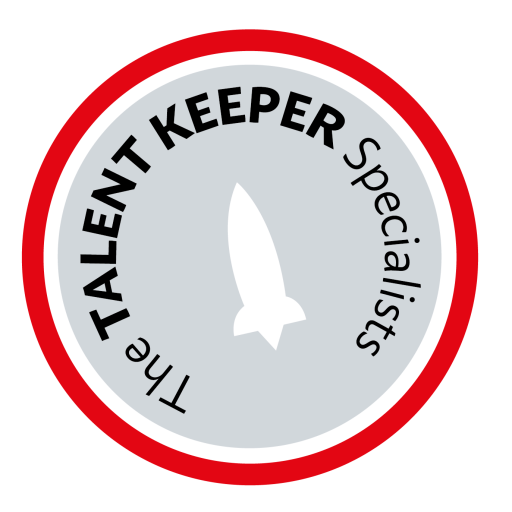Talent Fueller – Tim Loake, Dell
Tim Loake, is a director at Dell and an ambassador for the Men Advocating Real Change (MARC) programme from Catalyst. He’s opening other men’s eyes to unconscious bias in the workplace to even the playing field for women.
“What is the MARC programme?
“It’s an attempt to engage the company, and the leadership in the company, top-down. Men advocating real change is what it stands for and that’s what it is. As is typical of technology companies we are male heavy, although we do have female leaders including our chief customer officer. We don’t have enough though; we certainly don’t have balance.
MARC is about understanding our own unconscious bias and promoting a more inclusive leadership style up and down the company.”
What was the spark for MARC at Dell?
“Three or four of our leaders got involved in MARC as an external programme from Catalyst. They became ambassadors and persuaded Michael Dell and his direct reports that we needed to do something differently. The executive leadership team then went through the programme and it cascaded down. Because it had that Board level ‘buy-in’, people have never said it doesn’t matter, everyone is recognising that there is something we need to do differently and that it is a personal journey as everyone has their own bias and that everyone is in some way privileged versus everyone else.
Once you have recognised that you have some privilege, you can start to think about how your behaviour needs to be different and MARC is the start of that journey.
We’ve shared a number of videos with staff that highlight where we have unconscious bias. Until you recognise you have it, you don’t realise there is a problem. Watching these films is like turning a light on – you suddenly see that you have these biases, we all do – and people begin to realise they need to do something different.
‘Run like a girl’ is an example of one of those powerful films. Effectively it takes a bunch of young girls and asks them to run like girls, which they do and the point of the video is: when did ‘Run like a girl’ become an insult? It’s a very powerful video, particularly for anyone who has a daughter. Just showing that video to people opens their eyes and shows them that there is something that they might need to do differently.”
What does MARC look like in practice at Dell?
“It’s done in different ways at different levels. Within the Bracknell site, we had a full staff gathering after the leadership team had been through the programme. Everyone was invited and it was voluntary. We started simply by showing some films and asking people to start thinking about how they behave and how we behave as a society.
People often have very emotional reactions, and I’ve cried watching them. The film “Man Up,” is to do with male suicide rates and that’s one of the most destructive phrases in the English language. You can’t help but connect with the message and it gets the audience to a point where they want to do things differently.
As I watched it I kept thinking about my children and how I’ve inflicted gender bias on them without ever knowing it. And thankfully, they are at an age where I can undo that. I have two sons age 8 and 3 and there are things I do differently at home now and my wife as well – I’m much more conscious of my language.
Gender bias is rife in society, a view of what people can and should be able to do. Everywhere you go, there is bias. As parents and people we can only deal with the bias that we are aware of and that we can control.”
Why is the MARC movement important to you?
“Creating an inclusive environment where people are free to bring all of themselves to work and be whoever they are makes Dell a better place to work. If people feel valued and included, they will perform better. It will improve employee retention, it will improve employee performance, it should improve the attitude of our people towards our customers, suppliers, vendors and ultimately make our business more successful. That’s the nub of it. There are other side benefits around the markets in which we engage such as a diverse workforce developing products that match needs of all our customers and potential customers.
Has MARC been measured?
“No. A company like Dell measures everything but we’ve made a deliberate decision not to measure this. The only thing we measure is the amount of people who have been through the 4-hour training or the 2-day ambassador training. We have put 1300 people through the 4-hour training and we’ve now got just over 100 ambassadors. It’s a two-day investment, so director level and upwards are able to be ambassadors, because we want it to be leadership led as that has the biggest impact.
Being an ambassador is a choice. The 4-hour course is open to everybody and is run by ambassadors; normally two, a man and a woman. Beyond that, it’s really trying to advocate for the programme, to change opinion, to tackle stereotype bias in our own business, to try and recognise where privilege is playing a part in decision making – in hiring, in structuring or just in running the business.
Being privileged doesn’t make you wrong or bad or part of the problem, it’s just the group that you find yourself in and if you can recognise that, you can do something about it. As an ambassador hopefully my eyes are more open to when those things are occurring and I’m trying to do things differently and lead the way. Change in an organisation doesn’t start because you tell someone to do something different, it’s because you change the experiences that they have and therefore the perceptions that they hold and that will shape their future behaviour.
That’s why we focused on leadership in terms of the ambassador community because we have the biggest impact on the experiences that our teams and those around us have. And therefore we can change the behaviour of the organisation.”
Could you tell us about the things you’re doing beyond MARC
We do quite a lot of work in the community and ‘IT’s Not Just For Geeks’ is a 2-hour programme aimed at 14-16 year olds, held during school time by Dell employees to show them what working in IT is all about.
We also have a strong women’s network called WISE – Women in Search of Excellence, led by Aongus Hegarty (President of EMEA). WISE does a lot of work within the industry, in terms of engaging with external groups and trying to change and educate within the company on a very practical level. One very popular session WISE have run is a presentation skills workshop as that’s something many female colleagues have said they want.
Other programmes include PRIDE for our LGBT community, Mosaic, GenNext which is targeted at bringing young people into the business, Conexus for all our remote workers and Planet group which is about trying to become more environmentally friendly. We encourage everybody to try and be a member of one of these groups – to do something beyond coming to work, doing the job and going home again. * Link to all employee resource groups http://www.dell.com/learn/us/en/uscorp1/cr-diversity-employee-resource-groups
Whats Next?
“It’s hard to see too far ahead due to the combination with EMC, but I’m sure they have programmes we can take advantage of and vice versa. The intent is very much to try and use all of these programmes and activities that we have going on to help create a new company culture as we bring tens of thousands of people together.
To be successful as a new business as quickly as possible, we’ll need to work together and harmonise the beliefs and value structures we have. The cultures are probably not that different but there will be work to do and I see programmes like MARC and the extension of it to the EMC community as well as engaging each other in our employee resource groups as a key way of helping to knock down those barriers.
I think for us it’s how we can leverage what we already have, in terms of established programmes and bring the communities together on both sides and use those as a lever to help create a new company culture for all of us which will allow us to be successful as we go forward as a new company.”






![Tracey_Groves[2]](https://www.talentkeepers.co.uk/wp-content/uploads/2014/08/Tracey_Groves2.jpg)



